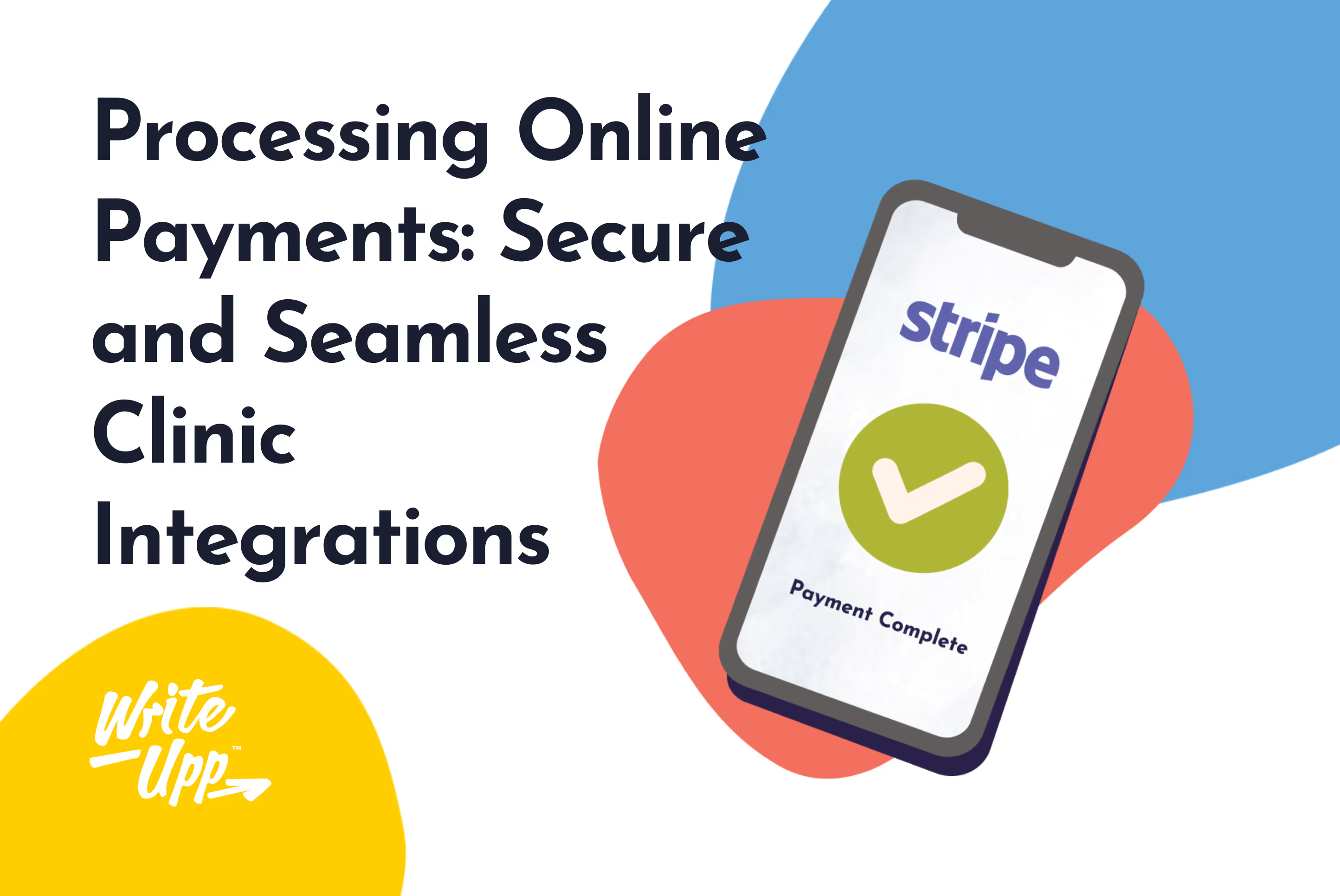As a therapist, social media platforms can be a powerful tool to grow your private practice. Social media lets you connect with potential clients and healthcare professionals while increasing your online presence and reach.
With a thoughtful social media strategy, you can expand your reach and provide valuable resources to your communities with these channels.
Don’t have time to read this article? We’ve got you. We recently spoke to registered psychotherapist Glenda Erwee on The Healthy Practice podcast from WriteUpp. Glenda is an experienced private practitioner and discusses social media and its importance in growing a modern-day practice.
You can listen to the conversation here:
https://pod.co/the-healthy-practice/social-media-and-marketing-how-to-grow-your-private-practice
How Could My Practice Benefit From Social Media?
Social media has become a powerful tool for businesses to reach larger audiences, and private practices are no exception.
By having a solid online presence on social media platforms, mental health professionals can connect with potential clients and market their services effectively.
So why might having a social media strategy be necessary for private practices looking to grow their client base?
1. Building brand awareness
Social media allows you to establish and promote your private practice brand. By consistently sharing relevant content, engaging with your audience, and showcasing your expertise, you can increase awareness of your practice among potential clients.
2. Expanding reach
Social media provides a platform to reach a wider audience beyond your local community. Through targeted advertising and content sharing, you can connect with individuals who may not be aware of your practice but could benefit from your services.
3. Establishing credibility and trust
An active social media presence allows you to demonstrate your expertise and build trust with your audience. By sharing valuable information, answering questions, and engaging in discussions, you can position yourself as a knowledgeable professional.
4. Enhancing patient communication
Social media platforms offer an additional communication channel with current and potential patients. You can provide updates about your practice, share important announcements, and address common concerns or questions. This improves patient engagement and fosters a sense of community.
5. Generating referrals
Social media allows your patients to share positive experiences and recommend your practice to their friends and family. This word-of-mouth marketing can significantly contribute to attracting new clients.
6. Keeping up with competitors
Many healthcare professionals and private practices already use social media to connect with their audience. By not having a social media presence, you may fall behind your competitors regarding visibility and patient engagement.
7. Staying current with trends and news
Social media platforms can be a valuable source of information about industry trends, new treatment options, and healthcare news. By following relevant accounts and participating in professional communities, you can stay updated and ensure your practice remains current.
It's important to note that social media should be used ethically and in compliance with the applicable rules and regulations governing your profession. Additionally, it's crucial to maintain patient confidentiality and privacy when using social media for your private practice.
How to Grow Your Practice Using Social Media
With the right marketing strategies and an online presence that stands out, you can attract your ideal clients, establish your authority within your field, and build stronger relationships with your existing clients.
Here’s how to do it:
1. Define your goals
Determine what you want to achieve through social media. Whether it's increasing brand awareness, driving website traffic, generating leads, or engaging with your audience, clearly define your goals to guide your efforts.
2. Identify your target audience
Understand your ideal patient demographics and interests. This knowledge will help you tailor your content and messaging to resonate with your target audience and attract the right people to your practice.
3. Choose the right platforms
Identify the social media platforms that are most relevant to your target audience. For example, Facebook, Instagram, and LinkedIn are popular platforms for healthcare professionals. Focus your efforts on the platforms where your audience is most active.
4. Create compelling content
Develop a content strategy that aligns with your goals and audience preferences. Share educational content, health tips, updates about your practice, patient testimonials, and relevant industry news. Use a mix of text, images, videos, and infographics to make your content engaging and shareable.
5. Consistency is key
Regularly post content to maintain an active presence on social media. Create a content calendar and schedule your posts in advance to ensure consistency. Aim for a balance between promotional and educational content, and interact with your audience by responding to comments and messages.
6. Utilise visual elements
Visual content is more eye-catching and shareable. Incorporate high-quality images, infographics, and videos in your posts to grab attention and convey information effectively.
Canva is a graphic design tool that makes creating beautiful social media posts easy. Unsplash is also great for finding high-quality stock photos for social media posts.
7. Engage with your audience
Engagement is the lifeblood of social media. Actively participate in conversations, respond to comments, and address questions or concerns from your audience. Engaging with your followers builds trust and fosters a community around your practice.
8. Utilise paid advertising
Social media platforms offer targeted advertising options that can help you reach a larger audience. Consider investing in paid advertising campaigns to increase your practice's visibility and attract potential patients.
9. Collaborate with influencers
Identify relevant influencers or healthcare professionals with a significant following on social media. Partnering with them for collaborations, guest posts, or endorsements can help expand your reach and credibility.
10. Monitor and analyse your results
Regularly track the performance of your social media efforts. Use social media platforms' analytics tools to assess engagement, reach, and conversion metrics. Analyse the data to identify what strategies are working well and adjust as needed.
Remember, growing your practice through social media is a long-term process that requires consistent effort and experimentation. It's essential to remain patient, adapt to changing trends, and refine your strategies based on audience feedback and data-driven insights.
Ethical Issues and Social Media
As a therapist engaging in social media marketing for private practice, several ethical concerns should be considered.
One of the primary considerations is patient confidentiality and privacy. While social media can be a powerful tool for marketing your practice, it is crucial to strictly adhere to GDPR guidelines and prioritise the safety and privacy of your clients.
Under no circumstances should a therapist disclose any information about a patient's diagnosis or treatment over social media. Social media channels should not be used to send messages discussing this type of information.
Maintaining the confidentiality of your patient's personal information, including their identity, is essential. Even if your client permits you to share their story, keeping their privacy in mind is crucial.
Therapists must also consider how they present their profession on social media. As healthcare professionals, therapists must adhere to a strict code of ethics. Presenting themselves accurately on social media is essential, providing only truthful and authentic information regarding their therapeutic approach and services.
Therapists must also be mindful of not crossing professional boundaries on social media. Developing a personal or dual relationship with a patient can blur the boundaries of a therapeutic relationship. Posting or engaging in inappropriate content can also negatively impact their professional reputation, ultimately impacting their clients' trust.
Social media can be an excellent tool for promoting and marketing a private practice, but it also brings ethical concerns that must be addressed. Therapists must follow GDPR guidelines and prioritise the privacy and confidentiality of their clients.
They must keep all information about their patients' diagnoses and treatments off social media channels and avoid any behaviour that crosses professional boundaries. Therapists can use social media responsibly and ethically to build successful practices while prioritising their clients' best interests.
Listen to The Healthy Practice Podcast
The Healthy Practice guides you through the common problems of starting your own practice.
We aim to help you take control of other aspects of practice management – including work-life balance, marketing, finances, & more – by offering insights & tips from practitioners who have mastered the early stages of private practice.
Listen here:
https://pod.co/the-healthy-practice
Or search for The Healthy Practice wherever you get your podcasts!



Join over 50,000 clinicians that we've helped using WriteUpp
Start my free trial






